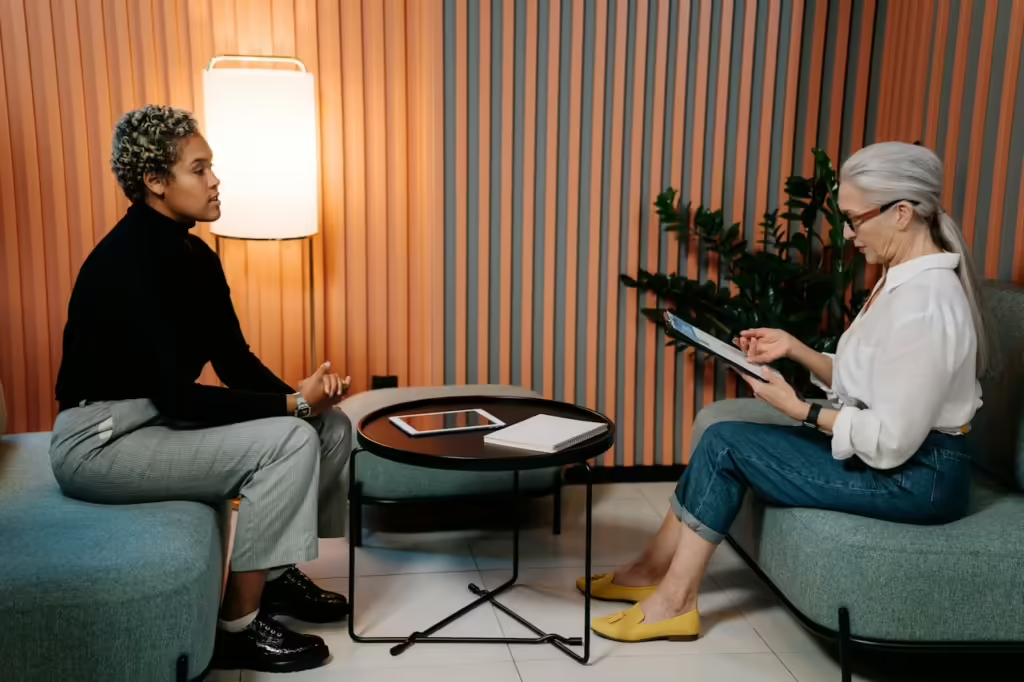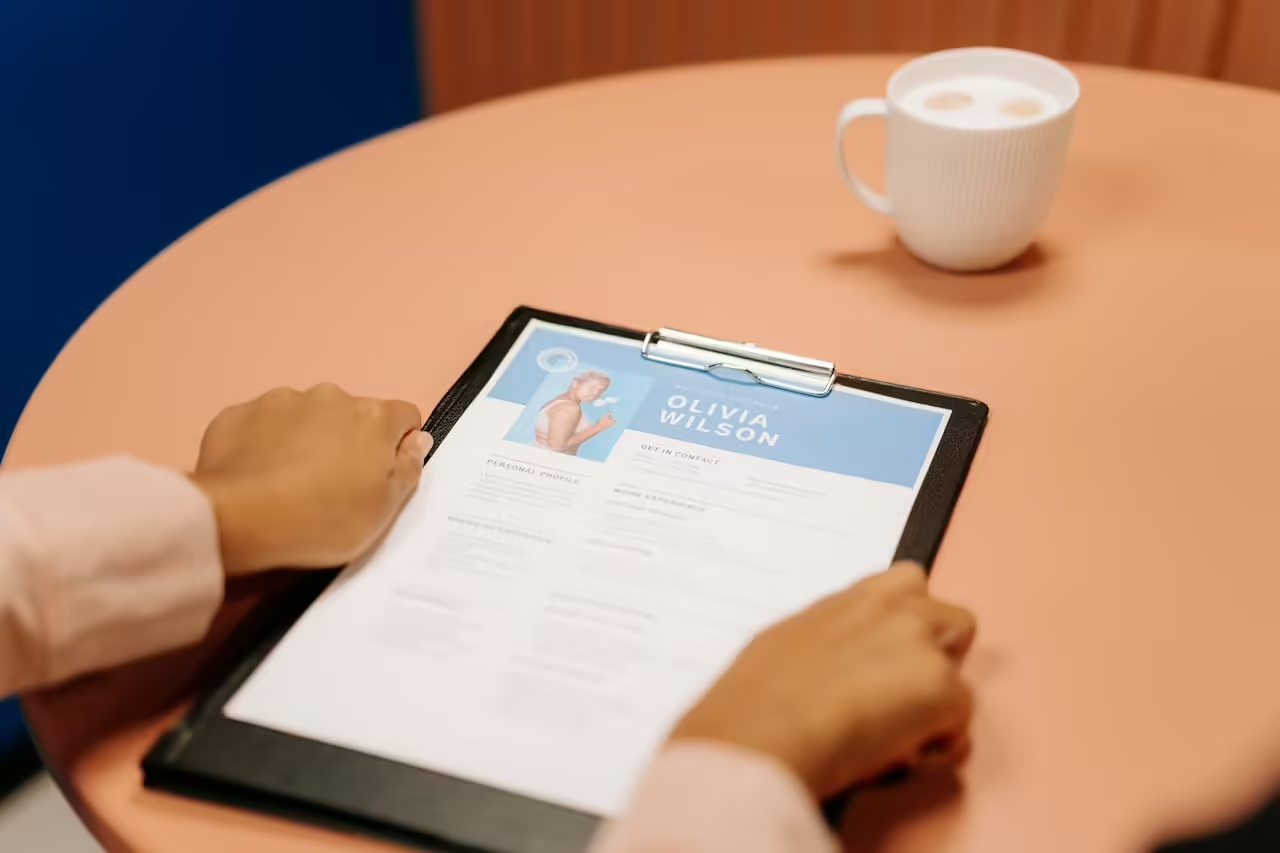Taking control of a job interview doesn’t mean dominating the conversation, but rather, it involves strategically guiding the discussion to highlight your strengths and address potential concerns. This proactive approach not only showcases your qualifications effectively but also demonstrates your preparedness and enthusiasm for the role. Here are ten ways to master this skill:
Balance Confidence with Respect

Approach the interview with a blend of confidence and humility. Show your self-assurance in your abilities without appearing arrogant. Acknowledge the interviewer’s position and expertise, and be respectful in your responses. This balance demonstrates your professionalism and makes a positive impression. Confidence can be seen through your body language, tone of voice, and the clarity of your answers. On the other hand, respect is shown by listening attentively, not interrupting, and acknowledging the interviewer’s viewpoints.
Proactively Address Concerns

Anticipate possible objections or concerns the interviewer might have about your resume or background. Address these preemptively by weaving explanations into your answers. This shows you are self-aware and proactive, which are traits highly valued by employers. For example, if there is a gap in your employment history, you might mention a productive activity you undertook during that period, such as volunteering or further education. By addressing these concerns upfront, you reduce the chances of them becoming stumbling blocks later in the interview.
Direct the Conversation

While you should always answer the interviewer’s questions, try to steer the conversation towards your strengths. Use transitions to shift topics smoothly. For example, if asked about a challenge you faced, segue into how you turned it into a learning experience that benefited your previous employer. This technique ensures that you highlight your best attributes and keep the conversation focused on your positive qualities. Additionally, having a mental list of your key strengths and how they relate to the job can help you pivot the conversation in your favor.
Research the Company

Knowledge about the company’s mission, values, and recent achievements allows you to tailor your responses to align with their goals. This not only shows your genuine interest but also helps you connect your skills and experiences to what the company is looking for in a candidate. Spend time exploring the company’s website, reading recent news articles, and understanding their industry position. This research can provide you with valuable insights and help you stand out as a well-informed and enthusiastic candidate.
Prepare STAR Stories

Use the STAR method (Situation, Task, Action, Result) to structure your responses to behavioral questions. This approach ensures your answers are clear and demonstrate your problem-solving abilities. Preparing these stories in advance can help you communicate your experiences more effectively. Think of several situations that showcase different skills and outcomes. Practicing these stories can also help you feel more confident and reduce the likelihood of being caught off guard by unexpected questions.
Ask Thoughtful Questions

Asking insightful questions shows that you are genuinely interested in the role and the company. It also gives you the opportunity to learn more about the job and its expectations. Prepare questions that reflect your research and demonstrate your enthusiasm for the position. Questions about the company’s culture, future projects, or team dynamics can provide you with valuable information and show the interviewer that you are thinking seriously about how you can contribute to their success.
Highlight Relevant Skills

Focus on skills and experiences most relevant to the job. Tailor your examples to show how your background makes you a perfect fit for the role. This helps the interviewer see you as a strong candidate who can meet the specific needs of the position. Use the job description as a guide to identify the most critical skills and experiences. When discussing your background, clearly connect your previous roles and accomplishments to these key requirements.
Practice Active Listening

Active listening involves fully concentrating on what the interviewer is saying, understanding their points, and responding thoughtfully. This shows respect and ensures you don’t miss important details. It also allows you to respond more effectively to the interviewer’s questions. Demonstrate active listening by nodding, maintaining eye contact, and paraphrasing important points to confirm your understanding. This not only helps you answer questions accurately but also builds a positive rapport with the interviewer.
Control Nervous Habits

Identify and manage any nervous habits, such as fidgeting or excessive use of filler words. Practice deep breathing and mindfulness techniques to stay calm and focused. Presenting yourself as calm and composed can significantly impact how the interviewer perceives you. Consider practicing mock interviews with a friend or using video recording to observe and refine your behavior. Being aware of and managing these habits can make you appear more confident and in control during the interview.
Follow Up

After the interview, send a thank-you email to express your appreciation for the opportunity. This not only shows good manners but also keeps you fresh in the interviewer’s mind. Mention a specific point from the interview to make your follow-up more personalized and memorable. A thoughtful follow-up email reinforces your interest in the position and can differentiate you from other candidates who may neglect this step.
Mastering the art of taking control in a job interview can significantly increase your chances of success. By balancing confidence with respect, proactively addressing concerns, and directing the conversation to highlight your strengths, you present yourself as a capable and prepared candidate. Researching the company, preparing STAR stories, and asking thoughtful questions show your genuine interest and enthusiasm. Practicing active listening, controlling nervous habits, and following up with a thank-you email further demonstrate your professionalism. These strategies not only help you stand out but also allow you to showcase your qualifications in the best possible light. Taking control of the interview process is about making sure your true potential is recognized and appreciated by your future employer.







